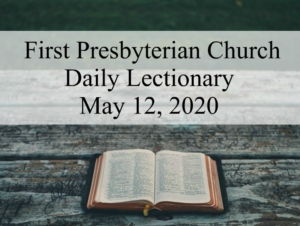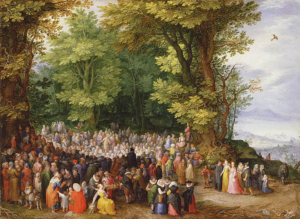
First Reading Leviticus 16:20-34
Second Reading 1 Thessalonians 5:1-11

Matthew 6:7-15
7“When you are praying, do not heap up empty phrases as the Gentiles do; for they think that they will be heard because of their many words. 8Do not be like them, for your Father knows what you need before you ask him.
9“Pray then in this way: Our Father in heaven, hallowed be your name. 10Your kingdom come. Your will be done, on earth as it is in heaven. 11Give us this day our daily bread. 12And forgive us our debts, as we also have forgiven our debtors. 13And do not bring us to the time of trial, but rescue us from the evil one. 14For if you forgive others their trespasses, your heavenly Father will also forgive you; 15but if you do not forgive others, neither will your Father forgive your trespasses
In the past weeks maybe you have taken up something new—a language, an instrument, a reading project. Or maybe you have recovered something familiar—working in the yard, cooking more, exercising. Or, just maybe, you’re keeping everything together long enough that you couldn’t possibly have time for anything else (it’s amazing how busy you are when the world has “stopped.” You’d just take a break from the dishes, for once). These constraints may make it a challenge to feel like taking up anything else: like, for instance, regular prayer. We’ve all been in those public places where pious effusions pour from practiced mouths. And it’s just that sort of visible comfort—even if the prayer isn’t any good—that makes us wonder whether we could do the same. But here, Jesus wants to make things easy on us. The value of prayer doesn’t come from heaping up empty phrases but from the simple repetition of—even those few—things we know by heart: because the heart of the prayer is all that matters.
Our Father, who art in heaven, hallowed be thy name. Thy kingdom come. Thy will be done on earth as it is in heaven. Give us this day our daily bread and forgive us our debts as we forgive our debtors. And lead us not into temptation; but deliver from evil: for thine is the kingdom, the power, and the glory forever. Amen.
Art: Bruegel, Jan, 1568-1625. Sermon on the Mount, from Art in the Christian Tradition, a project of the Vanderbilt Divinity Library, Nashville, TN. http://diglib.library.vanderbilt.edu/act-imagelink.pl?RC=55346
